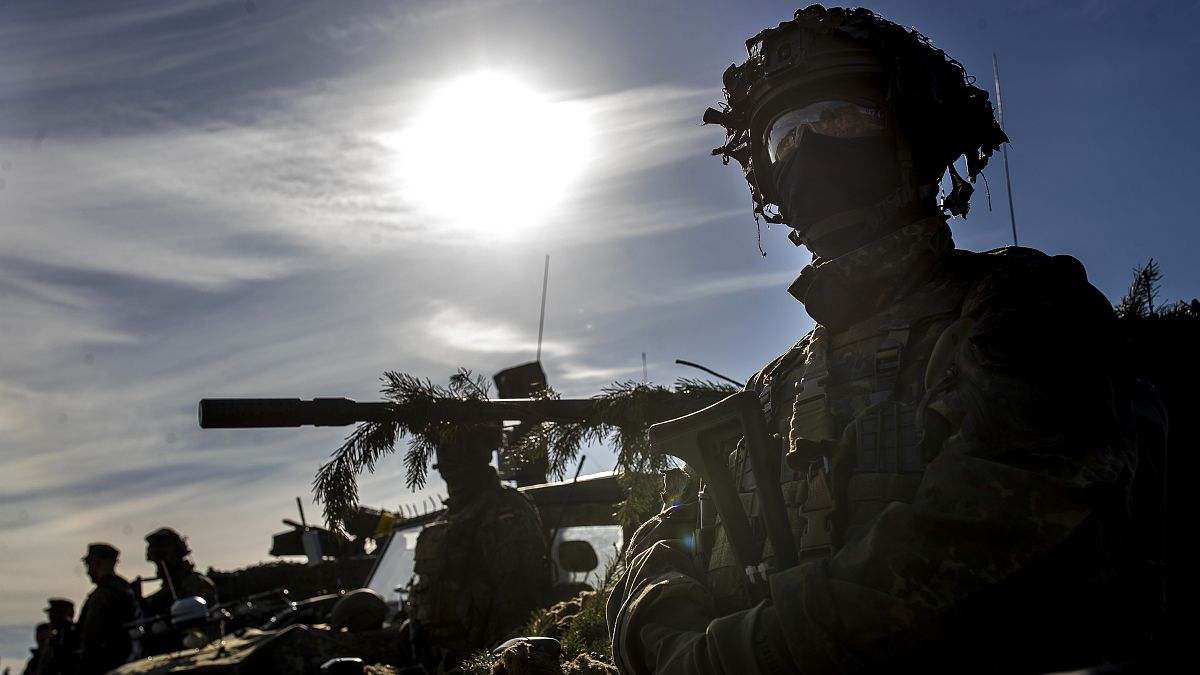The United States ambassador to NATO has also warned of 'unprecedented consequences' in the event of Russia using nuclear strikes.
NATO will go ahead with nuclear exercises next week, despite escalating tensions between the West and Russia following Vladimir Putin's thinly veiled threats to use nuclear weapons.
Secretary-General to the military alliance, Jens Stoltenberg, said on Tuesday that the annual exercises are routine and were planned long before the Kremlin invaded Ukraine.
The main part of them will be held more than 1,000 kilometres away from Russia and involve fighter jets with the capability to carry nuclear warheads, albeit, with no live bombs to be used.
Less than half of the NATO member countries will take part in the exercises.
When asked if they were a good idea given the delicate situation with Moscow, Stoltenberg said it would not be a good look to stop them now.
"It would send a very wrong signal if we suddenly now cancelled a routine, long-time planned exercise because of the war in Ukraine. That would be absolutely the wrong signal to send," the Secretary-General told reporters in Brussels.
"NATO’s firm, predictable behaviour, our military strength, is the best way to prevent escalation," he added. "If we now created the grounds for any misunderstandings, miscalculations in Moscow about our willingness to protect and defend all allies, we would increase the risk of escalation."
Ahead of a NATO defence ministers meeting this week, the United States' Permanent Representative to the military alliance, Julianne Smith, told Euronews her country will not accept any nuclear threats by Russia and that there will be a serious response if they are used.
"We've messaged the Russians quite directly that any use of nuclear weapons would be faced with unprecedented consequences," Smith said on Tuesday.
"This is something we are mointoring closely and I think you've also heard colleagues back in Washington say that right now we do not see an indication that Russia is preparing to use nuclear weapons."
Stoltenberg also said its members will prioritise Ukraine’s urgent needs, including more advanced air defence systems and other capabilities in light of the serious escalation in Russia’s invasion.
There are concerns too in the West, over depleted weapons stockpiles, after months of supplying Ukraine. Allies will now look at how to replenish them, while also maintaining supplies to Kyiv.
